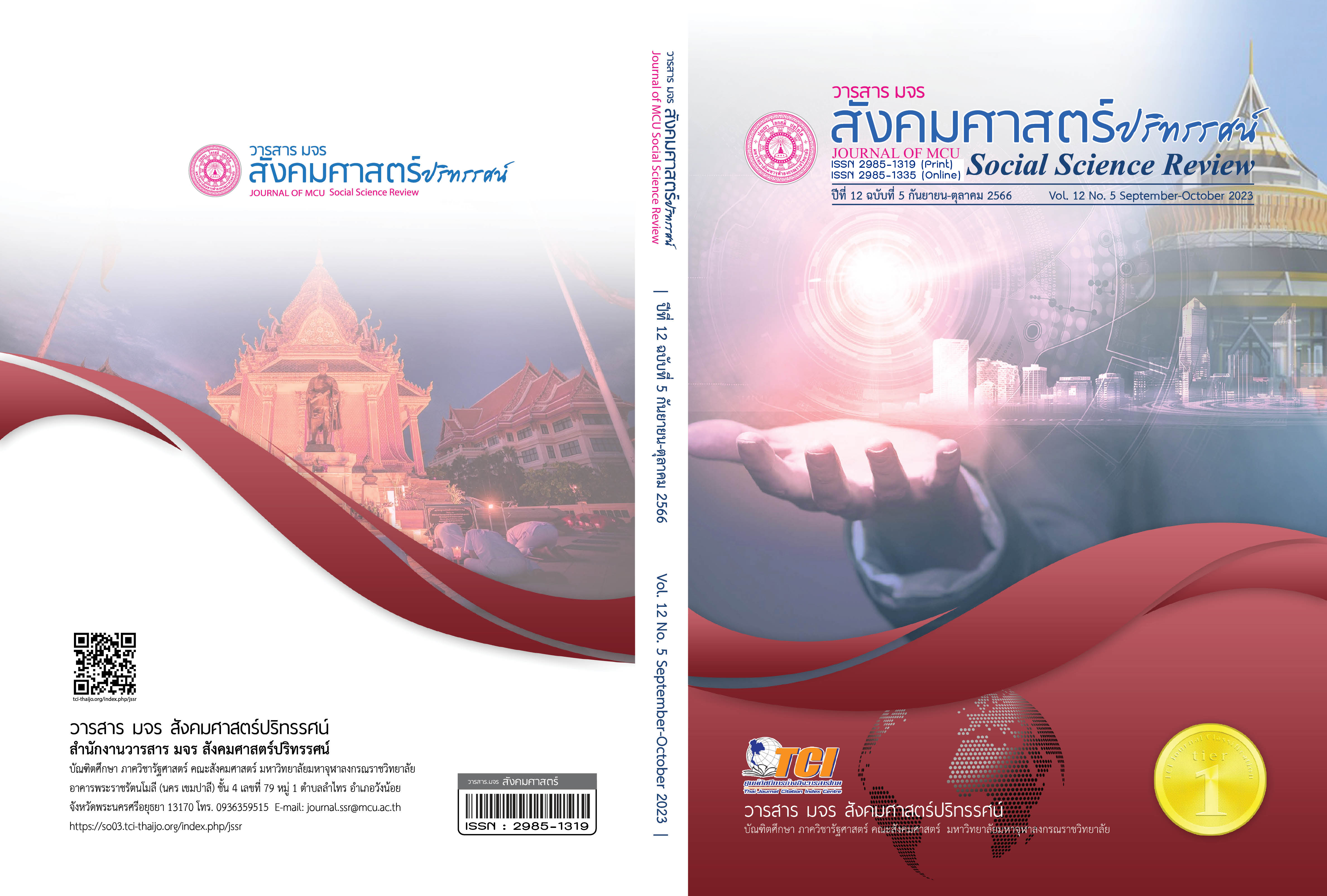ANALYSIS OF PLATO'S POLITICAL PHILOSOPHICAL IDEAS
Keywords:
concept, political philosophy, PlatoAbstract
The purpose of this article is to study and analyze Plato's political ideas. The study found that Background and reasons for Plato's interest in political philosophy because of the unfair political problems of the city of Athens which caused Socrates, Plato's teacher, to be executed. because of social and political criticism During that time, Athens was under the rule of Sparta. Plato then set out to travel to various places. to seek further knowledge and return to Athens again to set up the Academy to serve as a center for transferring educational and political knowledge to society Characteristics of a good political leader must have a clear mind and a healthy body. A wise king who leads a government must have knowledge. Good political character must educate people. Plato's good form of political governance is aristocracy. The influence of religion on Plato's metaphysical political conception is in the world of dominant form. Political developments require strict rules. and the political weakness lies in the people's lack of education As for Plato's socio-political concepts, it was about the division of labor. Socio-political problems come from ideas that are imagined beyond reality. Political strength lies in the formation of participatory organizations. The influence of human beings on the creation of a political society is the development of the mind. Education as a tool for social development is arithmetic. arithmetic and astronomy
References
นรพัชร เสาธงทอง. (2559). ทฤษฎีและปรัชญาการเมือง. ปทุมธานี: มหาวิทยาลัยปทุมธานี.
______. (2563). เวทีปรัชญาโลกแห่งประเทศไทย. สืบค้น 8 ธันวาคม 2564, จาก https://www.facebook.com/wpfthailand
ประจิตร มหาหิง และรุสนีย์ การีอุมา. (2547). ปรัชญาการศึกษาของเพลโต. สงขลามหาวิทยาลัยสงขลานครินทร์.
พระราชวรมุนี (ประยูรธมม.จิต.โต). (2542). ภูมิปัญญากรีกบอเกิดภูมิปัญญาตะวันตก. กรุงเทพฯ: ศยาม.
พินิจ รัตนกุล. (2515). เพลโตและปัญหาเกี่ยวกับคุณธรรม (พิมพ์ครั้งที่ 2). กรุงเทพฯ: มหาวิทยาลัยธรรมศาสตร์.
เพลโต. (2523). โสคราตีส [Socrates] (สุลักษณ์ ศิวรักษ์, แปล). กรุงเทพฯ: ไทยวัฒนาพานิช. (ต้นฉบับพิมพ์ปี พ.ศ.2523).
______. (2523). อุตมรัฐ [The Republic] (ปรีชา ช้างขวัญยืน,ผู้แปล). กรุงเทพฯ : สำนักพิมพ์จุฬาลงกรณ์มหาวิทยาลัย. (ต้นฉบับพิมพ์ปี พ.ศ.2523).
ฟื้น ดอกบัว. (2532). ปวงปรัชญากรีก. กรุงเทพฯ: โอเดียนสโตร์.
วารีญา ภวภูตานนท์ ณ มหาสารคาม.(2547). ปรัชญาขั้นแนะนำ : กระแสคิดที่ทรงอิทธิพลต่อโลก. กรุงเทพฯ: สำนักพิมพ์ชีวาภิวัฒน์.
ศรัณย์ วงศ์คำจันทร์. (2537). ปรัชญาเบื้องต้น. กรุงเทพฯ: โรงพิมพ์อมรการพิมพ์.
Whitehead, A.N. (1929). The Aims of Education. New York: Macmillan Publishing.
Downloads
Published
How to Cite
Issue
Section
License
Copyright (c) 2023 Journal of MCU Social Science Review

This work is licensed under a Creative Commons Attribution-NonCommercial-NoDerivatives 4.0 International License.
In order to conform the copyright law, all article authors must sign the consignment agreement to transfer the copyright to the Journal including the finally revised original articles. Besides, the article authors must declare that the articles will be printed in only the Journal of MCU Journal of Social Sciences. If there are pictures, tables or contents that were printed before, the article authors must receive permission from the authors in writing and show the evidence to the editor before the article is printed. If it does not conform to the set criteria, the editor will remove the article from the Journal without any exceptions.





